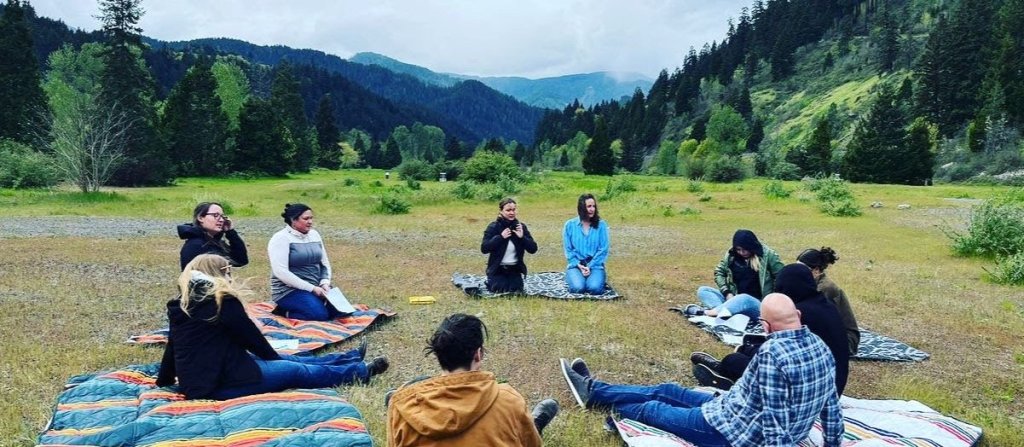Building a Career in Sustainable Tourism

Growing up in Hawaii, Ruby O'Donnell was surrounded by travel and tourism. Her parents chartered boats and worked in restaurants, and she herself started in the tourism industry as early as 14 years old.
Before moving to Oregon, she saw both the joy tourism could bring visitors and the economic impact it could have on inns and outfitters-but also the devastating effects it could have on local affordable housing, a perpetually stressed labor market, and Hawaii's world-renowned beauty.
"It's a pristine, beautiful, natural environment where you can see a lot of the negative effects of tourism," O'Donnell says.
Those experiences, the good and bad alike, informed O'Donnell's future as she pursued degrees in hospitality management and environmental sustainability at Oregon State University-and as she entered a career in an often unknown field: sustainable tourism.
Taking an Interest in Tourism and Sustainability
Having worked in tourism since her teenage years, O'Donnell knew she wanted to make the industry a part of her career. And with an understanding of the positive and negative effects tourism can have on a community, O'Donnell wanted to bridge that divide and create a better experience for visitors and small businesses alike. "Tourism can't continue to only be about serving people," she says. "It also needs to be about serving the environment it's happening in."
She became a research assistant while studying at Oregon State University, helping conduct resident sentiment studies that looked at how the people who live in communities impacted by tourism felt about the industry. O'Donnell presented those findings to several destination marketing organizations around Oregon-which is how she connected with the Willamette Valley Visitors Association.
After O'Donnell learned about WVVA's commitment to equitability and sustainability, she joined the team as an intern and began as a destination ambassador with the nascent Regenerative Destination program, a pioneering effort led by WVVA and the Transformational Travel Council that's designed to create and deepen connections between visitors and the Willamette Valley.
"It was just perfect," O'Donnell says of the opportunity. "A lot of times, when I would tell people about what I was studying in school, they'd be a little bit confused; everybody loves to talk about sustainability-how good it is and how much better we can make tourism-but they don't always know what exactly that looks like."
Helping Grow the Regenerative Destination Program
As a part of the Regenerative Destination program, O'Donnell's goal is to figure out what's working (and what's not) in the local tourism industry-and to craft sustainable solutions that create deeper, more enriching experiences for visitors to the valley.

The group at the heart of the program-made up of local outfitters, small-business owners, and industry pros-formed in 2021. In the months since, the group has met to discuss priorities, create common goals, and survey stakeholders-all so it can develop a strategic action plan that outlines goals for a more inclusive, sustainable travel experience and how to accomplish those goals.
For her part, O'Donnell is in the mix at those meetings as the team's project manager-facilitating work, looking for opportunities to expand sustainable experiences, and synthesizing the moments that excite and inspire group members-and turning those into actionable items that create long-lasting change.
Creating a Better Experience for Businesses and Visitors Alike
None of that work happens in a vacuum. Ultimately, O'Donnell hopes the Regenerative Destination program helps businesses craft deeper, more meaningful experiences that connect visitors to the Willamette Valley-something she routinely encountered while growing up in Hawaii.

"Part of my upbringing was knowing a deep sense of place you live in and why it's so important and so special," she says. "But a lot of people come in and don't share the same knowledge or love for the place on more than a surface level."
The way O'Donnell sees it, when you come to the Willamette Valley your experience shouldn't be limited to visiting a winery, tasting and taking some home. Rather, it might means talking to the vintner on a visit, learning about the winemaking process, and understanding why wine is so important to the region. "It's about having more authentic experiences with the people they visit in the valley," she says.
And that creates a better experience for everyone in the tourism sphere; business owners can better share their stories, workers are part of more sustainable outfits, and visitors will head home with enriching memories that inspire repeat visits.
It's a longer-lasting, less disposable form of travel-one that O'Donnell has been nurturing her entire life.
"I think there are so many tourism experiences that can bridge that gap, even if in little ways, to bring a better sense of connection between the traveler and the place in a more authentic way," she says.








